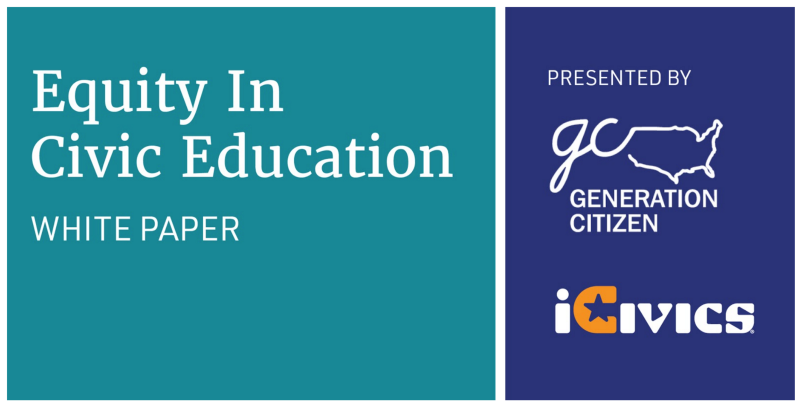
A team of 20 researchers, educators, and civic education practitioners released a white paper that outlines the challenges civic education has faced in its relevance for youth of color. The project, which was led by iCivics and Generation Citizen, with funding support from the William and Flora Hewlett Foundation, included forming a steering committee made up of a majority of people of color, conducting a listening tour across the country, investigating biases that the organizations themselves held, and led to this white paper.
The paper comes as millions of Americans reconsider their responsibility in combating systemic racism as part of a current resonating across the country; describing civics as a school subject that has been neglected — and one that is at the center of a critical crossroads as the racial equity movement unfolds.
“The need to strengthen equity in civics education is an urgent, moral imperative that requires all of us to roll up our sleeves. With a co-equal emphasis on culturally relevant teaching about our constitutional democracy, holding discussions on controversial issues, and digital literacy, on the one hand, and hands-on civics that builds on the lived experiences of all students, on the other, we can make civic learning the most exciting, impactful subject in our schools,” said Andrew Wilkes, Generation Citizen’s Senior Director of Policy and Advocacy.
This year and a half-long effort to center equity in the civic education field is just one early step in the journey that civic education organizations must make to elevate equity as a priority in this work.
“This paper shows that we need not just more civic education, but a more robust civic education that is focused on both our complex political history and relevant community experiences,” said Jane Lo, a professor of Teacher Education at the College of Education at Michigan State University. “To do this work effectively requires the collaboration of policymakers, district leaders, school administrators, community members, and teachers.”
The Equity in Civic Education paper is available at bit.ly/EquityCivicEd.
Read the full press release here.


 See All
See All